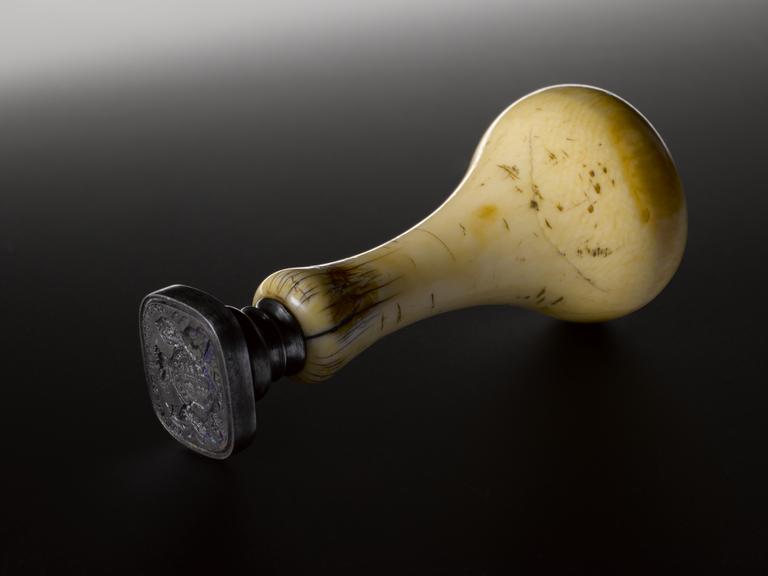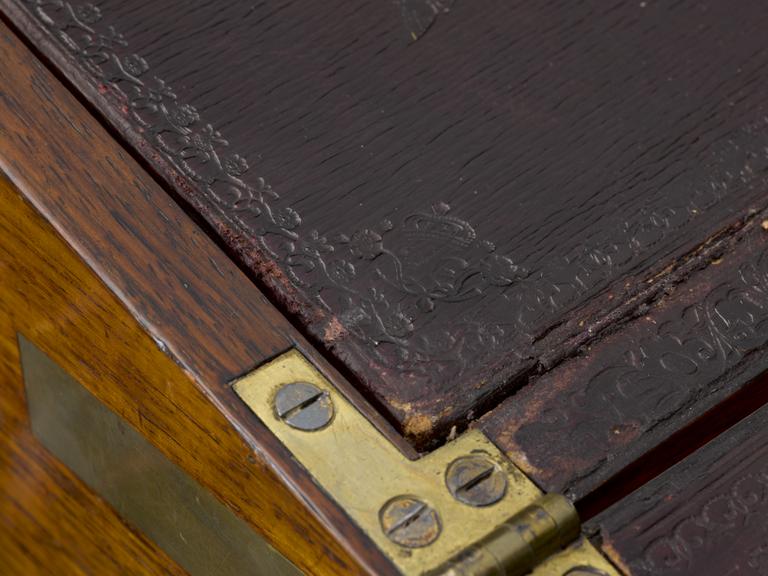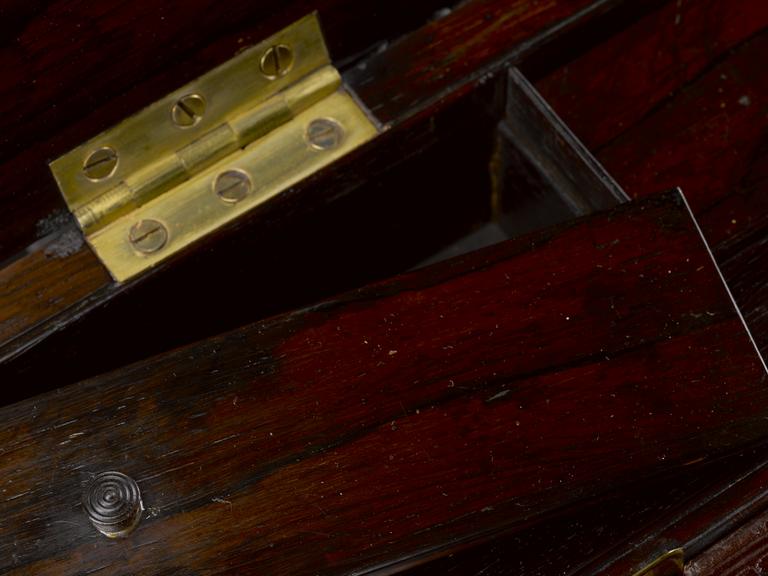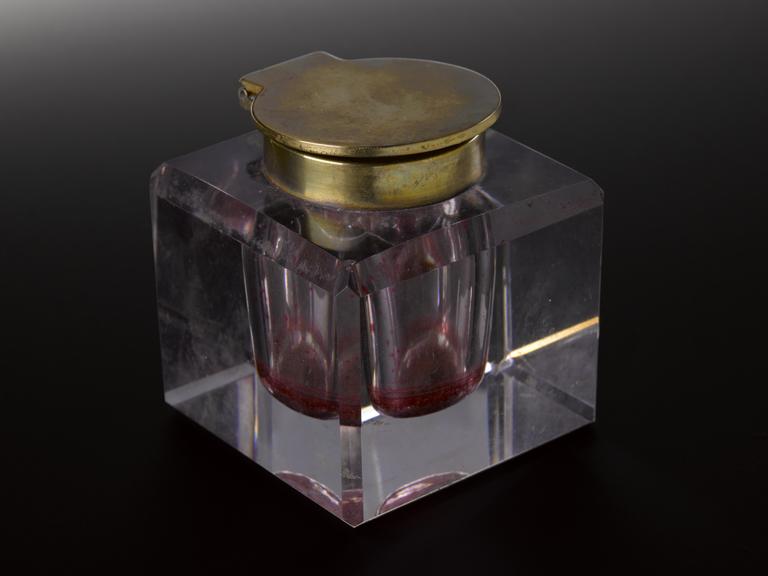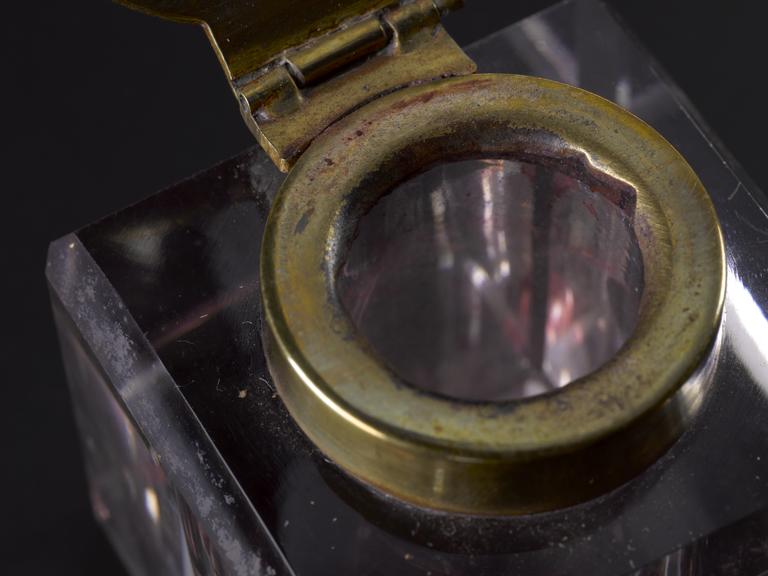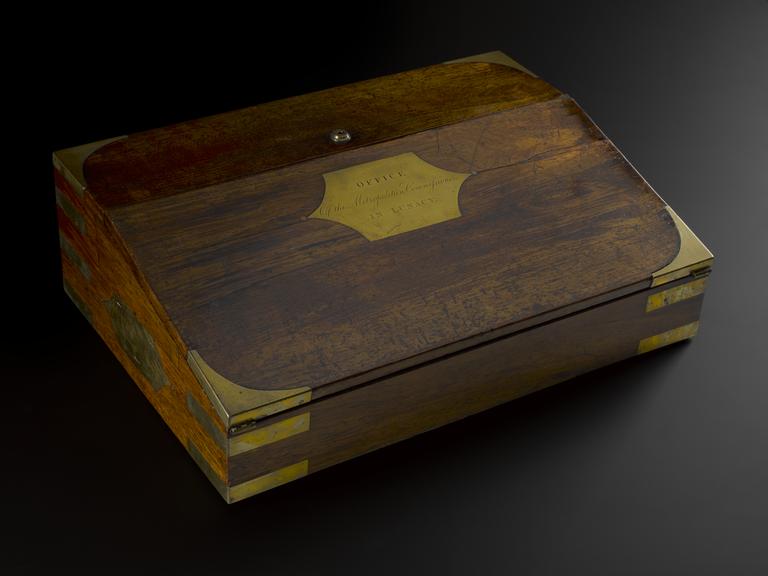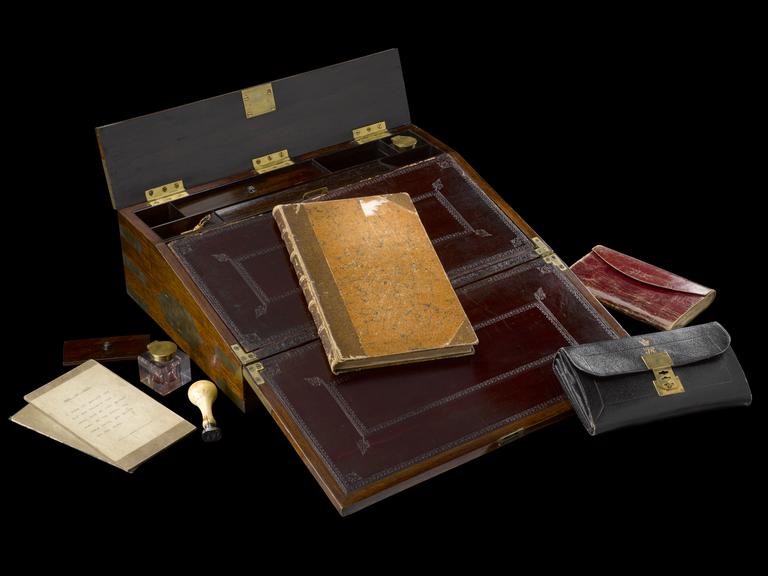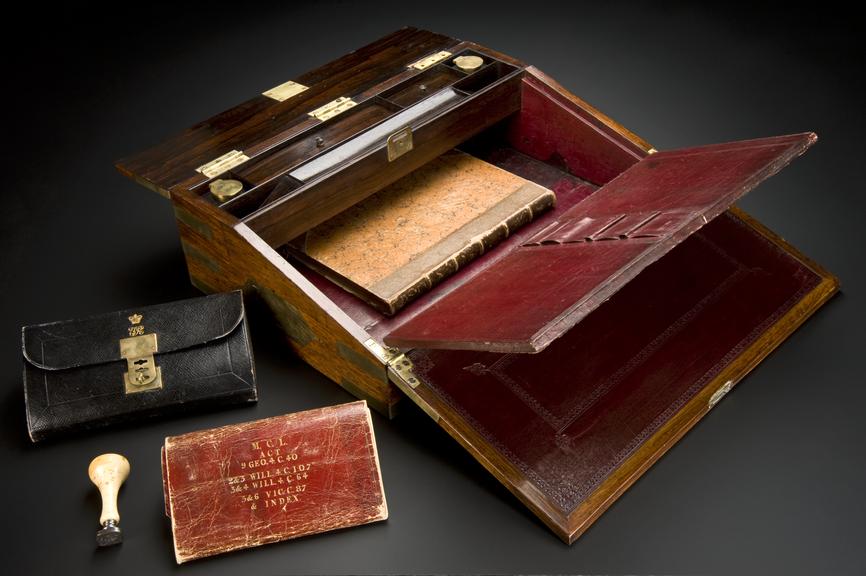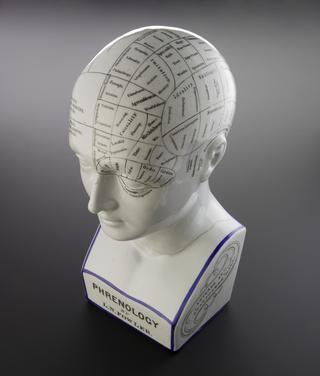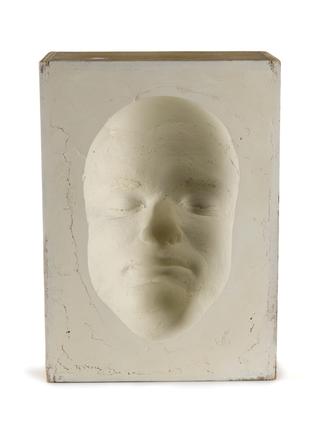Writing desk from the Office of the Metropolitan Commissioners in Lunacy
Writing desk of the Office of the Metropolitan Commissioners in Lunacy, Europe, 1828 - 1914, wood, leather
More
Writing desks were designed to be portable and to store writing equipment. This example came from the Office of the Metropolitan Commissioners in Lunacy. The Commission was set up in 1828 to inspect private asylums in Middlesex and the London metropolitan area. It granted or revoked licences, and could make unannounced inspections, interview patients and release those it felt had been unjustly placed in asylums. The Commission sought to improve medical treatment of patients and set minimum acceptable standards of accommodation. Every year, the Commission had to submit a report to the Home Secretary of its findings. In 1845, its duties extended to all boroughs and counties of England and Wales.
The desk contains documents such as relevant Acts of Parliament and oaths used for giving evidence. These documents are testament to the treatment and status of mental illness in the 1800s and use terms considered unacceptable today. For example, the category ‘lunacy’ included “Rogues, Vagabonds, and other idle and disorderly persons”. If these individuals were considered to have mental illnesses, they could be ‘kept safely locked up in some secure place’ and if necessary ‘be there chained.’
- Materials:
- wood (unidentified) , leather and metal (unknown)
- Object Number:
- 1998-886/1
- type:
- writing desk
- Image ©
- The Board of Trustees of the Science Museum, London











